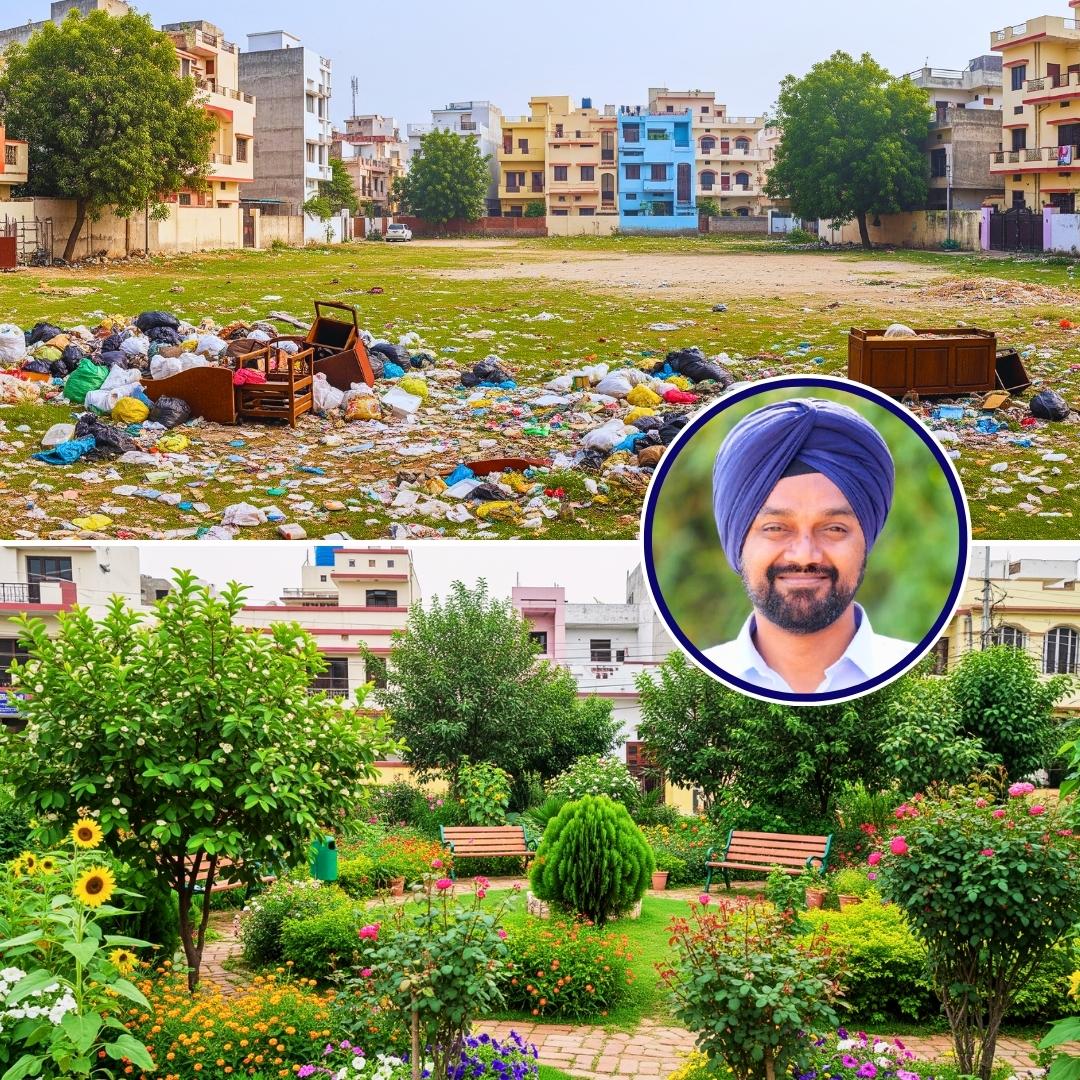IAS officer Indrajit Singh, a 2016 batch Uttar Pradesh cadre officer and visionary Municipal Commissioner of Lucknow (2022–24), has earnestly transformed the city’s urban sanitation and greenery. Under his leadership, Lucknow rose remarkably from 41st to 3rd position in the Swachh Survekshan 2024–25 cleanliness rankings—the highest ever for the city.
His pioneering efforts include converting garbage-strewn plots into lush green parks, deploying innovative waste management solutions such as waste-to-fuel plants, introducing over 1,200 electric vehicles for efficient garbage collection, and fostering vibrant community engagement.
Recognised as a true changemaker, Singh’s work has garnered praise from corporate leaders like Anand Mahindra and felicitations from national dignitaries, spotlighting the power of committed leadership in urban renewal.
From Vision to Reality: The Changemaker Behind Lucknow’s Transformation
Indrajit Singh, an IAS officer of the 2016 Uttar Pradesh cadre, is a distinguished civil servant with a strong track record of innovative governance. His tenure as the Municipal Commissioner of Lucknow was marked by a hands-on, mission-driven approach toward addressing the city’s pressing sanitation and environmental challenges. Singh’s strategy combined technological innovations, administrative reforms, and citizen participation, demonstrating how visionary leadership can break bureaucratic inertia and catalyse change.
Currently, Singh also leads major projects in Uttar Pradesh involving renewable energy and electric vehicle infrastructure, further reflecting his commitment to sustainable development beyond urban sanitation. His leadership style hinges on inclusivity, transparency, and a deep belief in empowering communities to take ownership of their environment.
Revitalising Public Spaces and Waste Management: Key Initiatives
Among Singh’s remarkable initiatives was the transformation of major garbage dumps, such as Ghaila and Shivri, into flourishing green spaces. Ghaila, once a notorious dumping site, was rehabilitated into a verdant park hosting over 1 lakh trees, serving as a green lung for the city. Meanwhile, waste collected from Shivri was innovatively processed into fuel, turning sanitation challenges into sustainable solutions.
The deployment of over 1,200 electric vehicles significantly modernised municipal garbage collection, reducing pollution and improving efficiency. Singh ensured sanitation workers were provided with adequate equipment, training, and health safeguards—elevating their work conditions and efficiency.
Complementing infrastructural upgrades were widespread public awareness drives like “Clean Street, Green Street” and “Adopt-a-Park,” which successfully mobilised local communities and schools in ongoing cleanliness and greening efforts.
In a recent statement, Singh emphasised, “The transformation of Lucknow was possible only due to the collective resolve of citizens and officials working hand-in-hand. Our city’s beauty is a shared responsibility.”
Overcoming Historical Challenges: Lucknow’s Cleanliness Journey
Lucknow, celebrated for its rich cultural heritage and culinary legacy, had long struggled with sanitation issues such as public spitting, inadequate dustbin facilities, and unregulated waste scattering during festivals. Despite various government campaigns over the years, the city consistently lagged behind in national cleanliness rankings.
Singh’s appointment brought a shift from passive strategies to proactive, data-driven governance. Integrating Internet of Things (IoT)-enabled street sweepers, fostering waste segregation at source, and streamlining municipal finances were among the reforms that modernised the city’s sanitation apparatus.
These efforts culminated in Lucknow achieving the coveted 3rd rank nationally in the Swachh Survekshan 2024–25 survey—a historic milestone demonstrating how persistent institutional change combined with citizen engagement can radically alter urban narratives.
Recognition and Ripple Effects: A Model for Other Cities
The success of Lucknow’s transformation under Singh’s stewardship has attracted widespread recognition. Business magnate Anand Mahindra lauded Singh on social media as “an agent of transformational change whose mission and clarity broke the chains of bureaucracy.” Furthermore, Singh was felicitated by India’s President Droupadi Murmu, highlighting national appreciation for his service.
His work now serves as a replicable model of how cities across India can integrate technology, policy reforms, and participatory governance to achieve cleaner, greener urban environments. Singh’s ongoing leadership in Uttar Pradesh’s renewable energy initiatives reflects a commitment to embedding sustainability across sectors.
The Logical Indian’s Perspective
The remarkable journey of IAS Indrajit Singh in Lucknow is a testament to how dedicated leadership, innovative thinking, and community collaboration can revitalize urban spaces and public health. At The Logical Indian, we believe such changemakers embody the values of empathy, resilience, and inclusive growth critical for India’s sustainable development.












